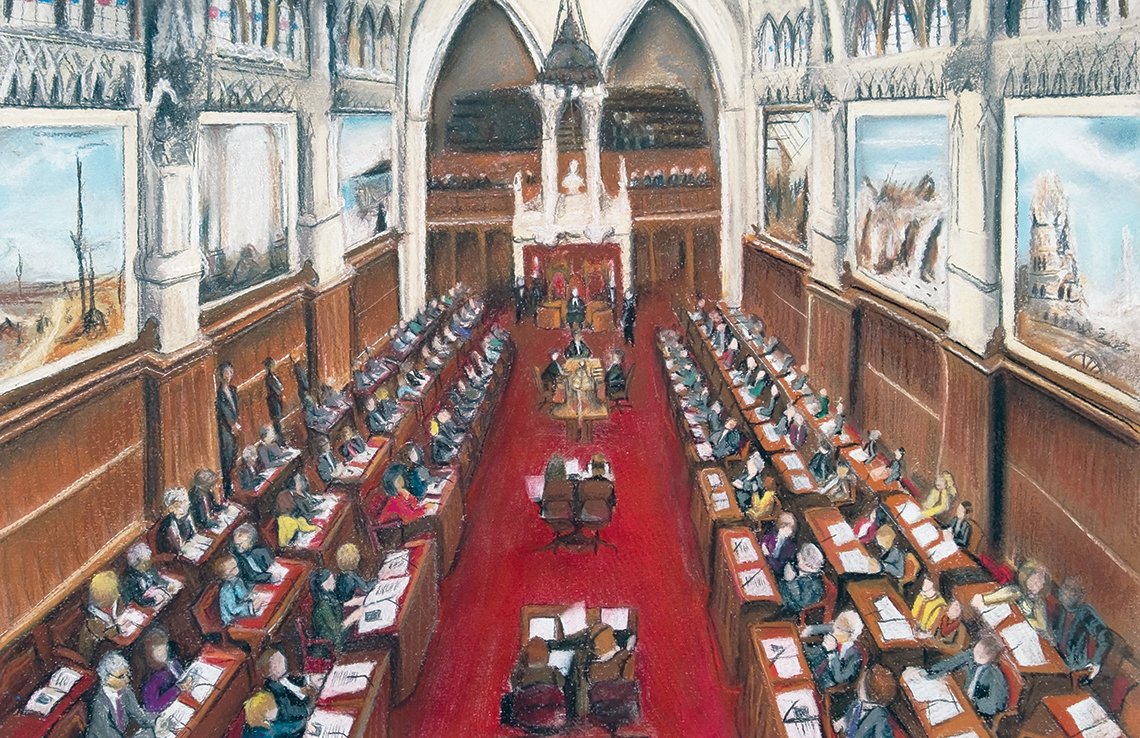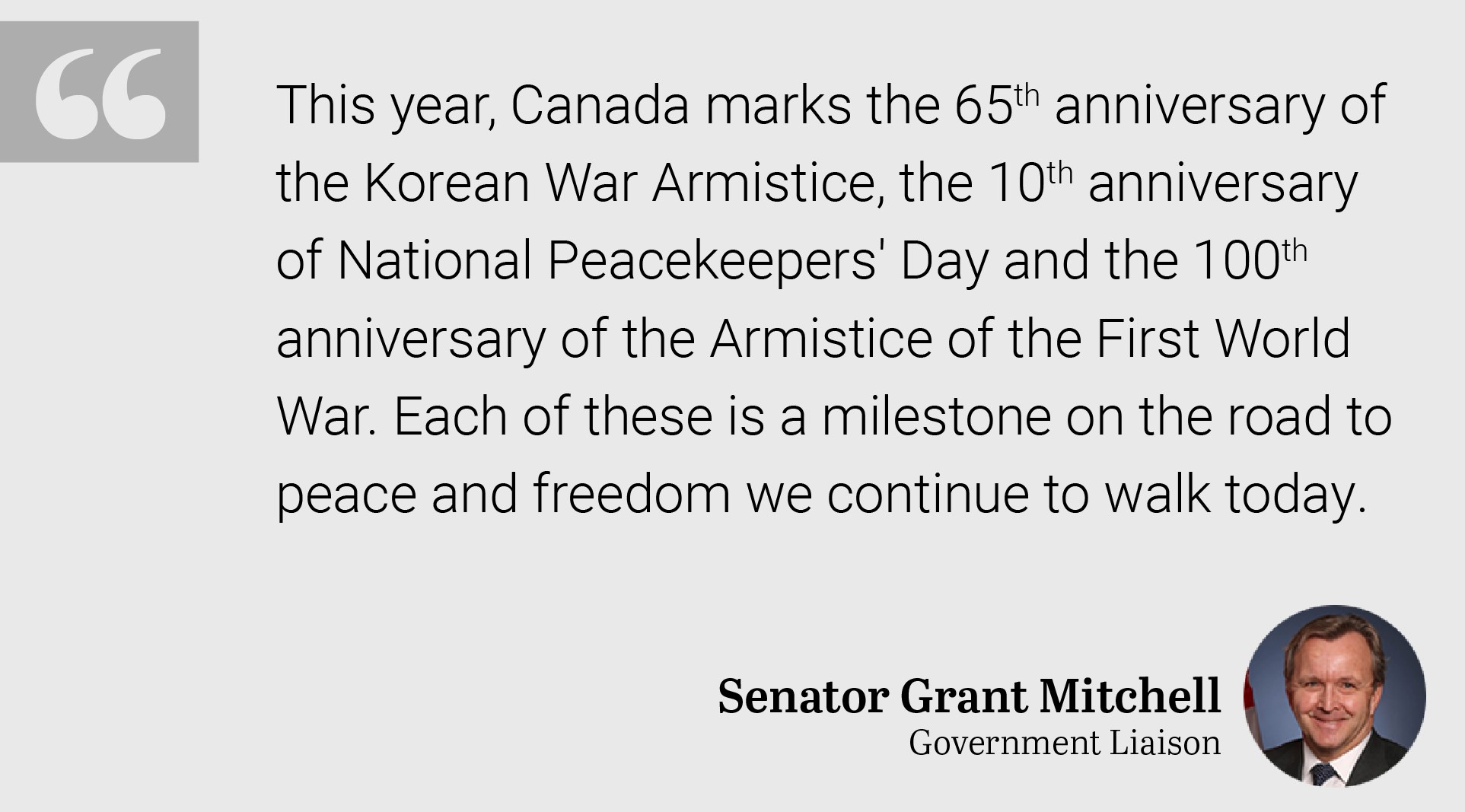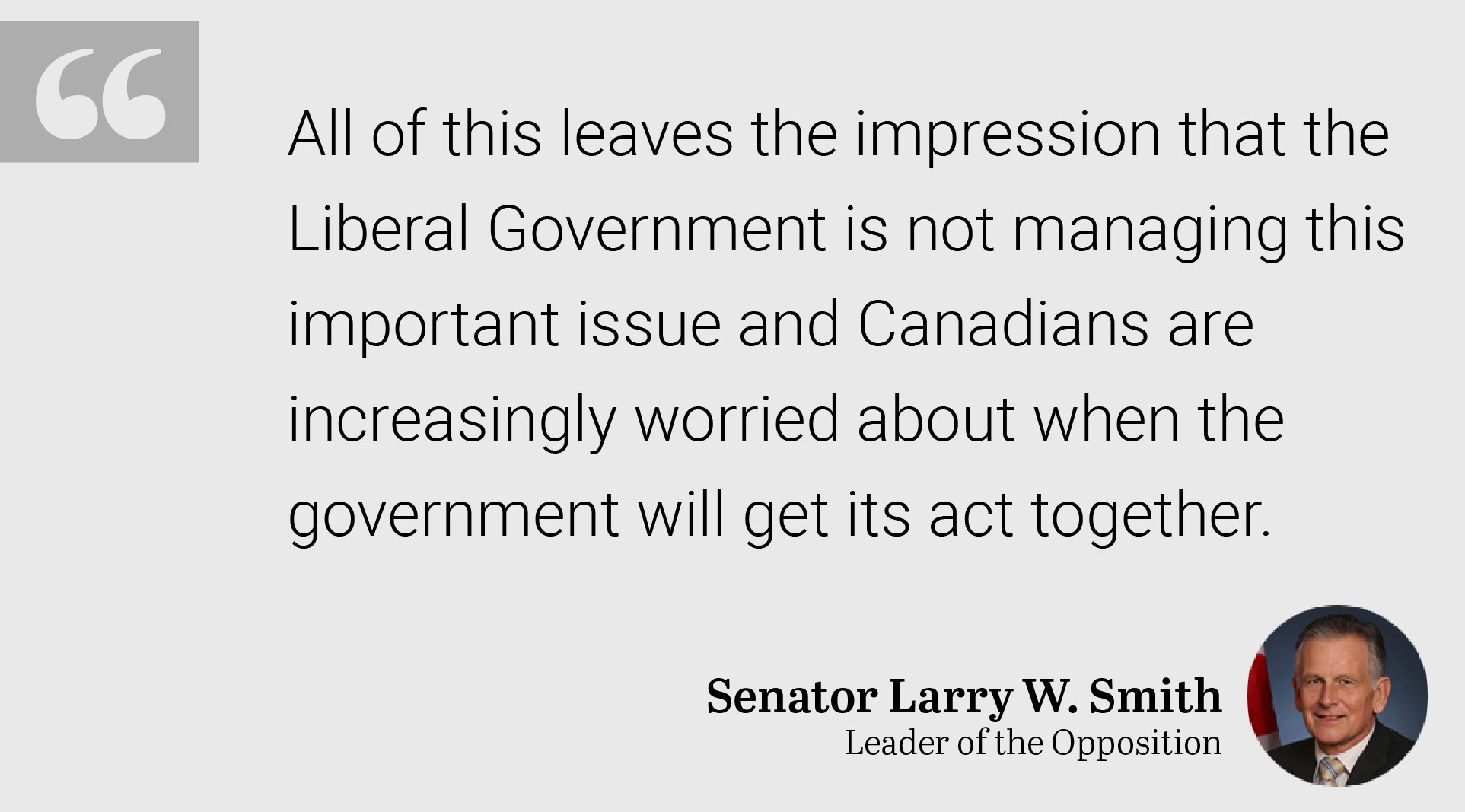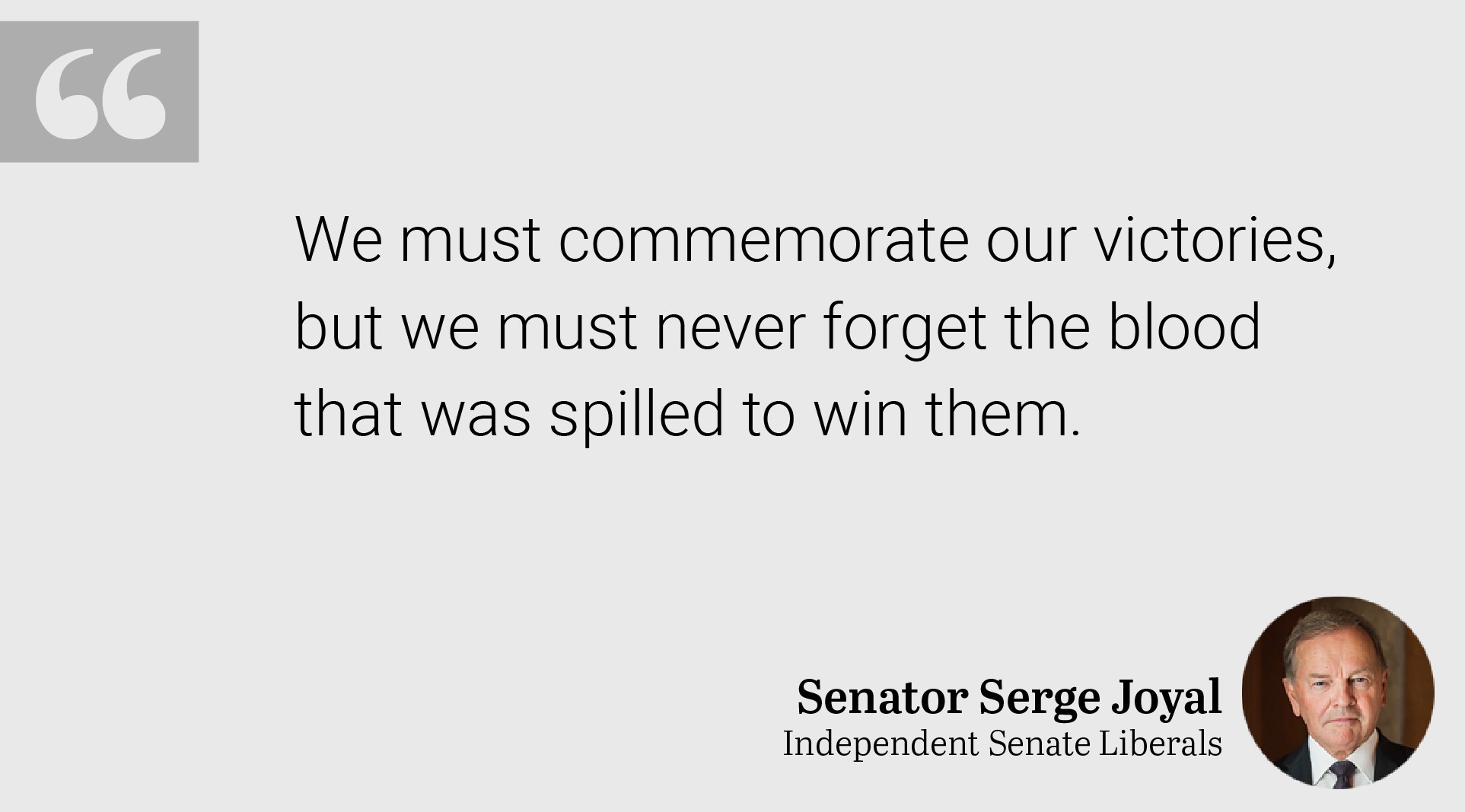Perspectives — November 5-9, 2018

Last week in the Senate: remembering our veterans, the rise in asylum seekers and modernizing our elections.

Government
My father, Bill Mitchell, was a 32-year veteran of the Canadian Army. He joined the Black Watch in 1938 and served until 1969. During that time, he fought extensively during the Second World War in Europe, and later served as a member of UN Forces in Korea. My father also joined a special monitoring force in Vietnam. He wasn’t a combatant, but he was there at very dangerous times.
I am extremely proud of my father, both for his courage and his belief in doing something that was bigger than he was.
Every day, Canadian Armed Forces members put their lives at risk, often leaving their loved ones behind to courageously defend our country's values and contribute to international peace and security.
This year, Canada marks the 65th anniversary of the Korean War Armistice, the 10th anniversary of National Peacekeepers' Day and the 100th anniversary of the Armistice of the First World War. Each of these is a milestone on the road to peace and freedom we continue to walk today.
Since the end of the overt hostilities in Korea 65 years ago, Canadian soldiers have come to play a different, yet essential, role on the world stage. Their commitment and skills as peacekeepers have gained Canada respect and influence the world over.
On November 11th, we paid special homage to those who died in service to their country. We remember these brave women and men for their courage and their devotion to ideals. These were ordinary Canadians who made extraordinary sacrifices. Lest we forget!

Opposition
Last week, the Hon. Bill Blair, Minister of Border Security and Organized Crime Reduction, appeared before the Senate Question Period where Senator Larry W. Smith, Leader of the Opposition, raised questions related to the border.
Currently, about 40% of shelter occupants in the City of Toronto are refugees. Senator Smith led with a question concerning the minister’s plan to ease the growing financial pressure on provincial and municipal services.
While the Minister previously indicated that the number of illegal migrants has been reduced, the RCMP found that more people entered Canada illegally this year than last year. The Liberal government set a new target to deport 10,000 failed asylum seekers per year, yet Canada Border Services Agency staff say they learned of this plan through the media and that a clear plan to achieve this target may not exist. Despite assurances given by Minister Blair, the Immigration and Refugee Board reported that the wait times for processing asylum claims is now 21 months.
Conservative senators also asked Minister Blair about the problems posed by organized crime and licensed marijuana producers, problems related to the legalization of marijuana in the province of New Brunswick, as well as the adequacy of drug detection devices.

Independent Senate Liberals
November 11 was the Centennial of the Armistice of the First World War. That war saw the birth of an independent Canadian Army of over 630,000 fighters, one built from scratch in a few months and that simply did not exist when war was declared.
The Centennial of the Armistice is the occasion to reflect on the last 100 days of the war, a period of exceptional bravery but also of tragic loss. During these 100 days, more than 45,000 Canadians lost their lives, equivalent to 20 per cent of all the Canadian casualties of the four year war.
The effort by the Canadian Forces during these 100 days involved 100,000 soldiers, the medical group with 3,000 nurses, and more than 20,000 horses. Each kilometre gained to push back the German army from France and Belgium left thousands dead and as many families to cope with the loss of loved ones.
I had the privilege of being one of the authors of a book recently launched by the Vimy Foundation, titled They Fought in Colour. Among the authors are historian Tim Cook, Paralympic athlete Rick Hansen and well-known writer Margaret Atwood. The book is simply stunning with more than 100 photos, most of them never before published.
We cannot remember these events without appreciating the scale of the human catastrophe that was the Great War of 1914-18. We must commemorate our victories, but we must never forget the blood that was spilled to win them.

Independent Senators Group
Last week, the Senate sent Bill C-76, the Elections Modernization Act, to committee for review. The bill attempts to do many things. It is a serious effort to increase accessibility to voting for Canadians; as well, the bill attempts to deal with some new and difficult issues concerning foreign influence, cyber-information, and third-party involvement in Canadian elections.
I am convinced that the bill’s provisions will assist Canadians to vote in greater numbers. The re-introduction of the use of the voter information cards to establish residency, and the re-introduction of vouching, are major features of the bill. Disabled Canadians will see more assistance as voters and as candidates. Youth will be able to pre-register to vote. More Canadians living abroad will be able to vote, and Armed Forces voters will have greater flexibility in where they can vote. Candidates with children will have more of their costs eligible for reimbursement; this will surely assist women who are running for public office.
I am especially enthusiastic about the enhanced ability given to Elections Canada to undertake public education campaigns.
But there is much more in C-76. Experts who study elections are looking to Canada to be a leader in dealing with the many contentious developments related to cyber information and cyber threats during election campaigns. As the bill heads to committee, I only hope that there will be enough time to fully examine these and other pressing issues.


